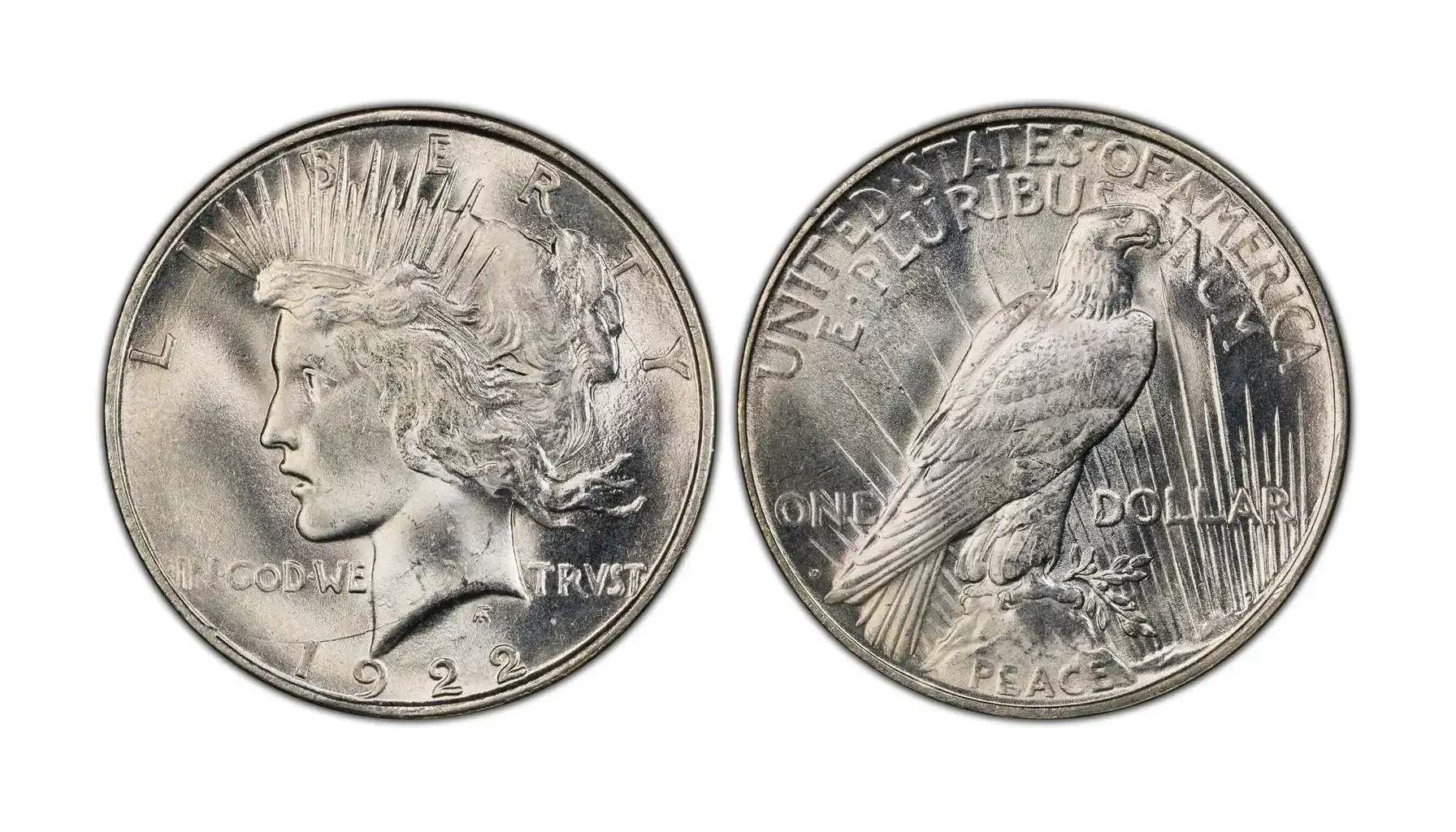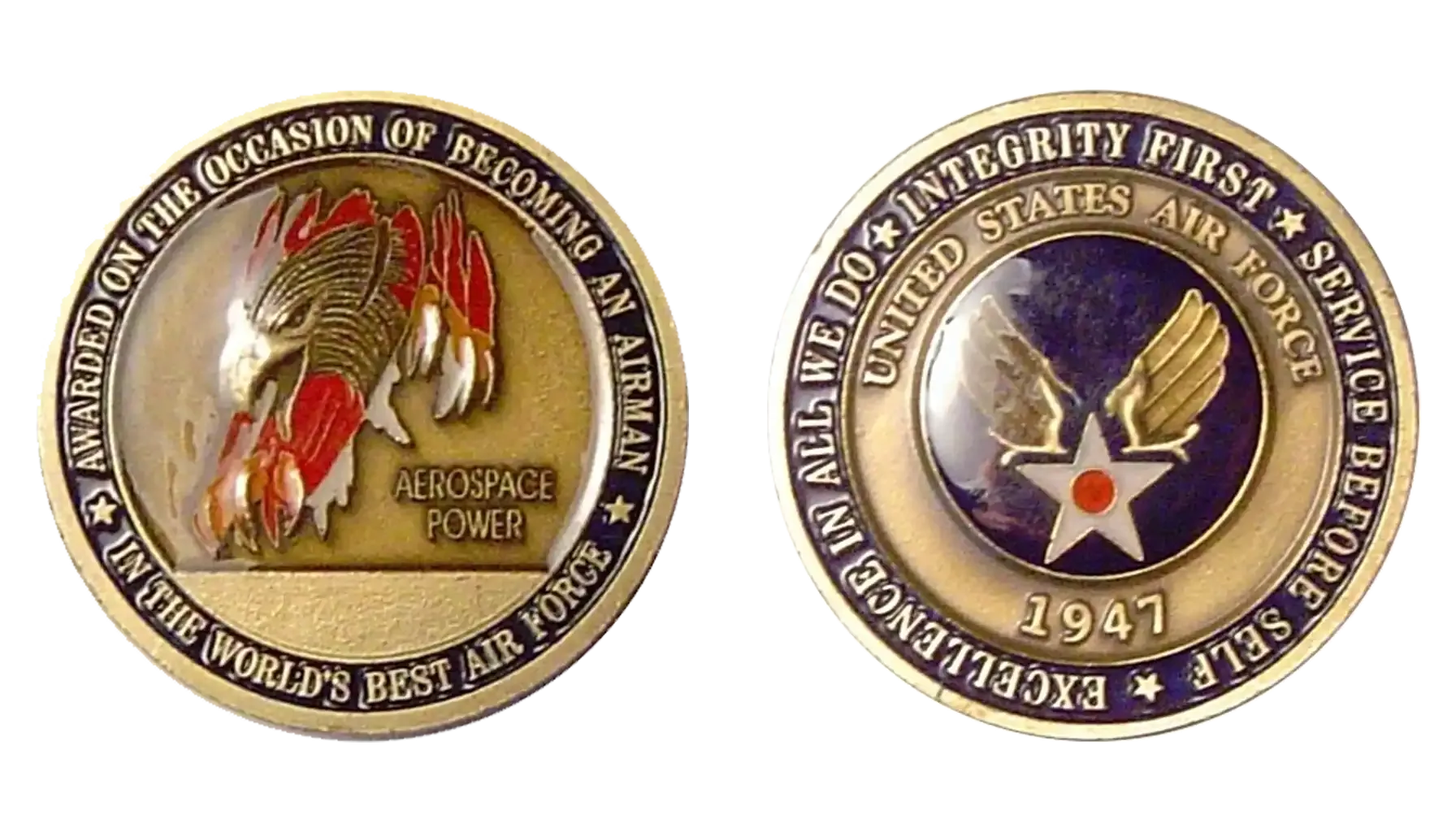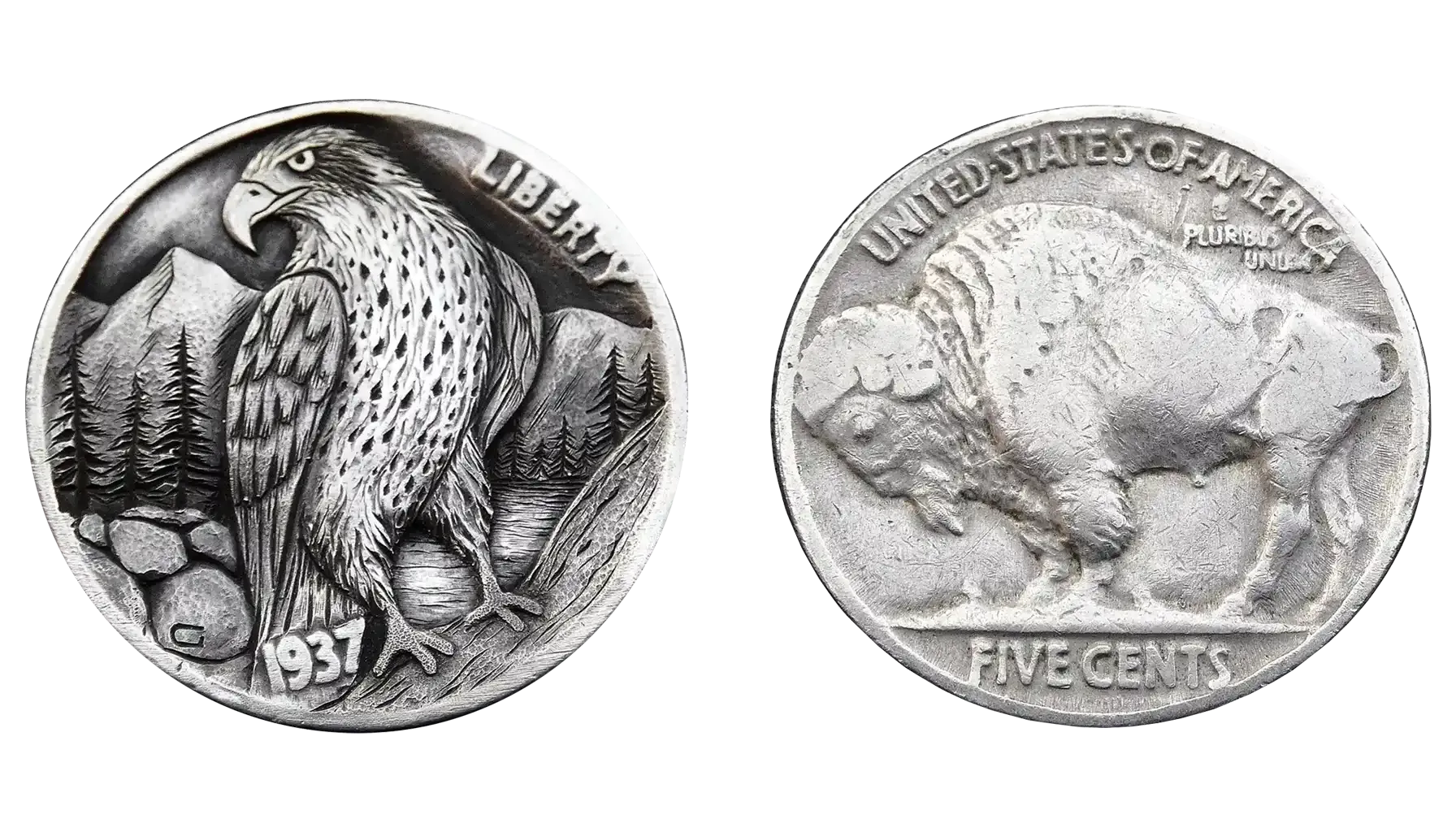Contents:
The proud nation of the US has different channels to celebrate its culture, and coins represent one of those omnipresent and universal aspects comprehensible to the members of different societies alike. The most prominent events should always be captured and cherished for other generations to be aware of their backgrounds.
The value of commemorative coins cannot be overstated. The United States of America with its relatively brief yet bright history may deliver its reflections through metal plates with dignity and grace. So, what does a commemorative coin mean in fact? Which instances might be called the most prominent? And what is the best free coin identifier app that can scan these coins and help collectors? Well, let us see.
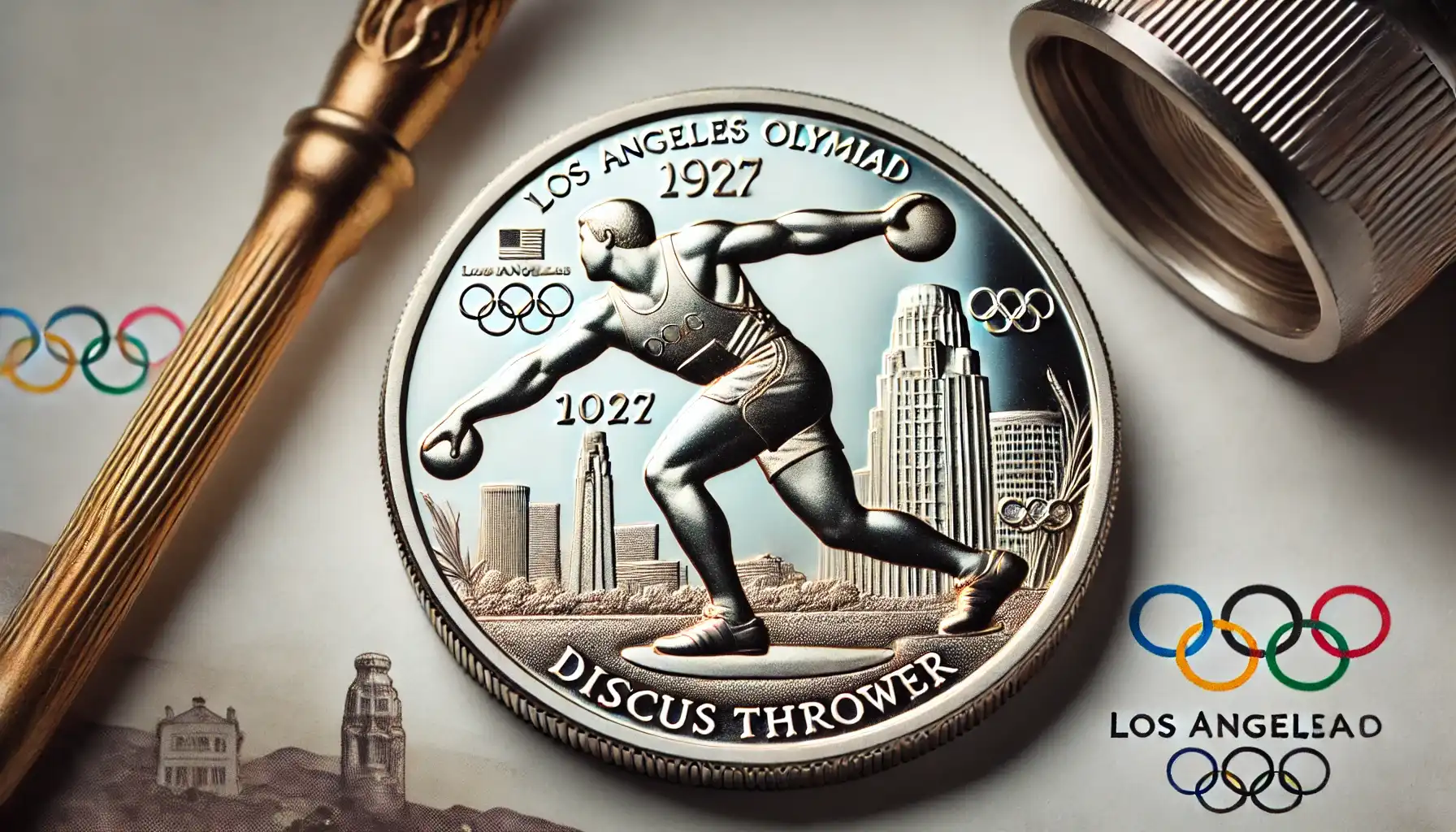
First Things First: What is a Commemorative Coin?
What does a commemorative coin mean? In general, commemorative coins are instances typically minted in the event of significant circumstances, anniversaries, or celebrations. It is obvious that these are not generally used for daily transactions but for national heritage or private collections, (especially, when made of precious metals like silver and gold). Nevertheless, those numismatic creations minted with standard denominations can be used on a regular basis anyway.
As such, commemorative coins reflect and display the most indicative designs and features regarding the event they are devoted to. In the US, governmental authorities limitedly issue US Mint commemorative coins in various denominations yet one dollar is still the most popular option though. Their exclusive mintage literally forces these coins to become longed-for valuables and enter collections of different kinds.
As they are approved by a higher, legally approved level, commemorative coins are more valuable than any other type. Some examples may come down to prominent Queen’s Beasts on coins, i.e., the figures and events prompted by the government to pay tribute to something special.

The Most Notable Commemorative Coins in the US
The history of the US is diverse, for it has always been a melting pot where cultures, languages, and lives merge in the end. This is why it is highly important for the nation to celebrate its synthetic identity that makes sense for them all. Let us briefly take a look at the commemorative coins value and some of the instances that portray truly American heart and soul.
1983: Olympics (Los Angeles) Discus Thrower Silver Dollar
Value: $100
It is a well-known fact that the Los Angeles Olympiad was held in 1984, but prior to this event there was released Los Angeles Olympiad Discus Thrower Silver Dollar to support athletes and gain funds in order to allocate the budget to the Games.
The coin’s design was prominent as it combined both the classical image of a Greek discus thrower, the Olympic rings, and the official motto of the country (“In God We Trust”) on the obverse side and an eagle on the reverse. A fine combination of traditions and local spirit.
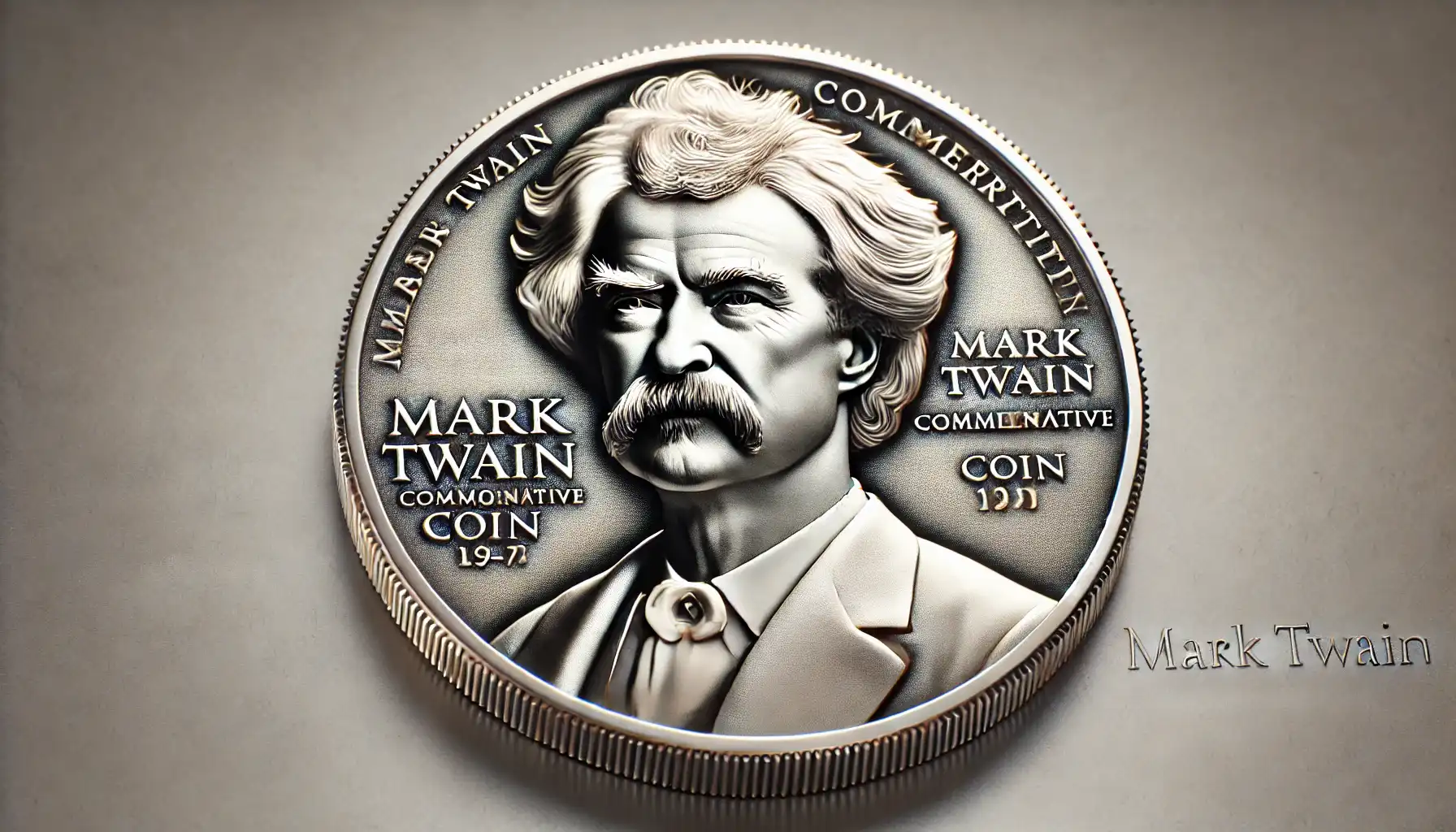
1986: Statue of Liberty Dollar
Value: ≈$20
To celebrate the centennial of the Statue of Liberty, the US government issued a coin that delicately portrayed this national symbol of freedom and democracy, the Statue of Liberty herself, and Ellis Island, a place significant for immigrants and alike.
What is especially unique about the coin is its reverse side where they put a few inscriptions, including “GIVE ME YOUR TIRED, YOUR POOR, YOUR HUDDLED MASSES YEARNING TO BREATHE FREE” and “E PLURIBUS UNUM” (which means “Out of many, one”).

1991: Mount Rushmore Golden Anniversary Dollar
Value: ≈$800
Most people outside the US are aware of the renowned Mount Rushmore which features the heads of outstanding American presidents, i.e., George Washington, Thomas Jefferson, Theodore Roosevelt, and Abraham Lincoln respectively. This is exactly what the Mount Rushmore Golden Anniversary Dollar coin portrays, apart from the buffalo which is depicted on the reverse side.
The fundings received via the coin distribution were meant to renovate the sculpture and reduce the national debt evenly.
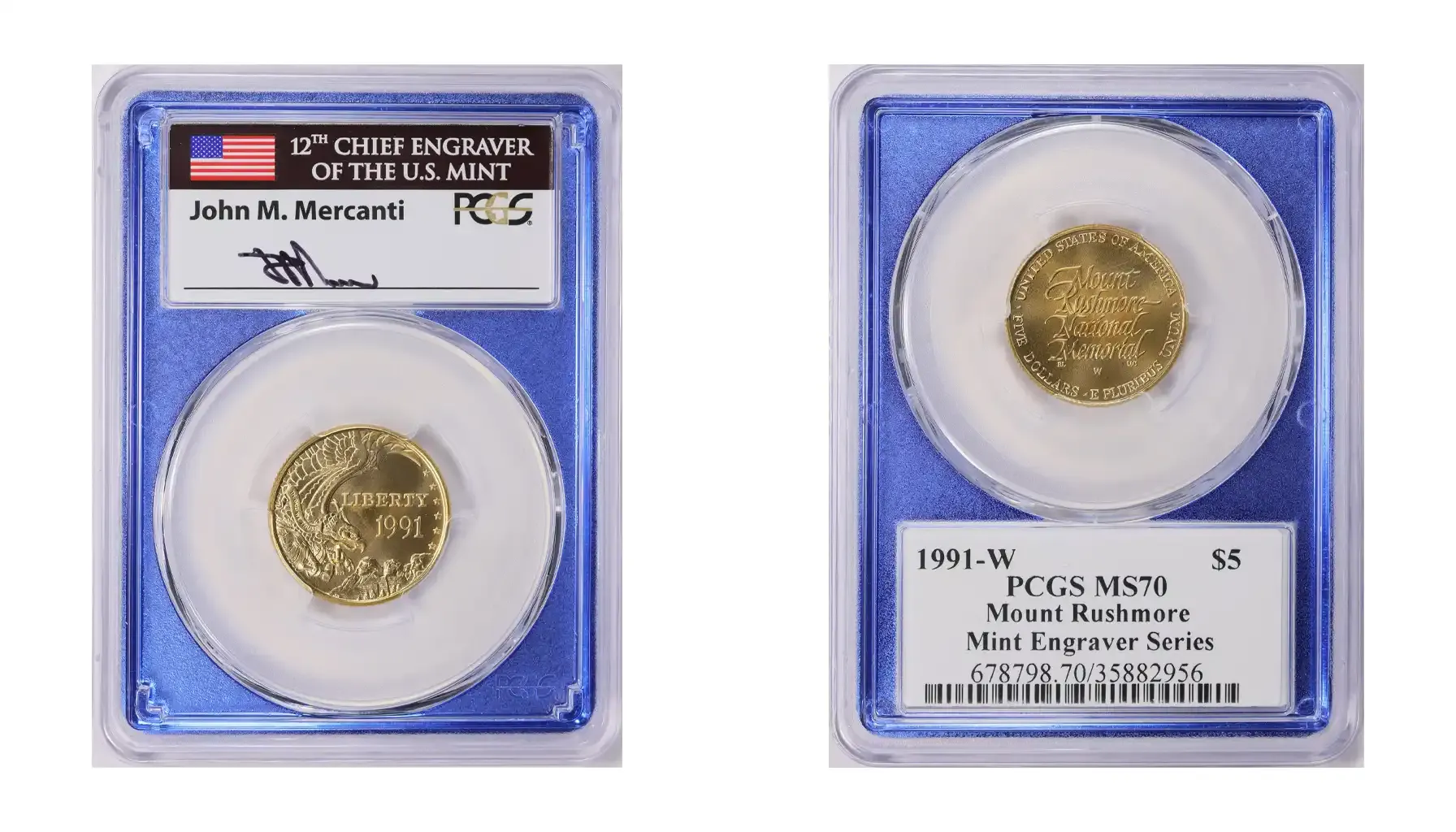
2016: Mark Twain Commemorative Coins
Value: ≈$500
Released in 2016, the Mark Twain Commemorative Coin program was dedicated to the celebration of this distinguished literary figure, one of the greatest authors of all time – Mark Twain. There were issued two coins, i.e., a $1 silver commemorative coin and a $5 gold commemorative coin, both featuring the characters from his books and the author himself.
American culture was indeed influenced by the creative mind of Twain, and so was the world’s art that still praises his talent and literary instincts that lead his artistic heritage further.
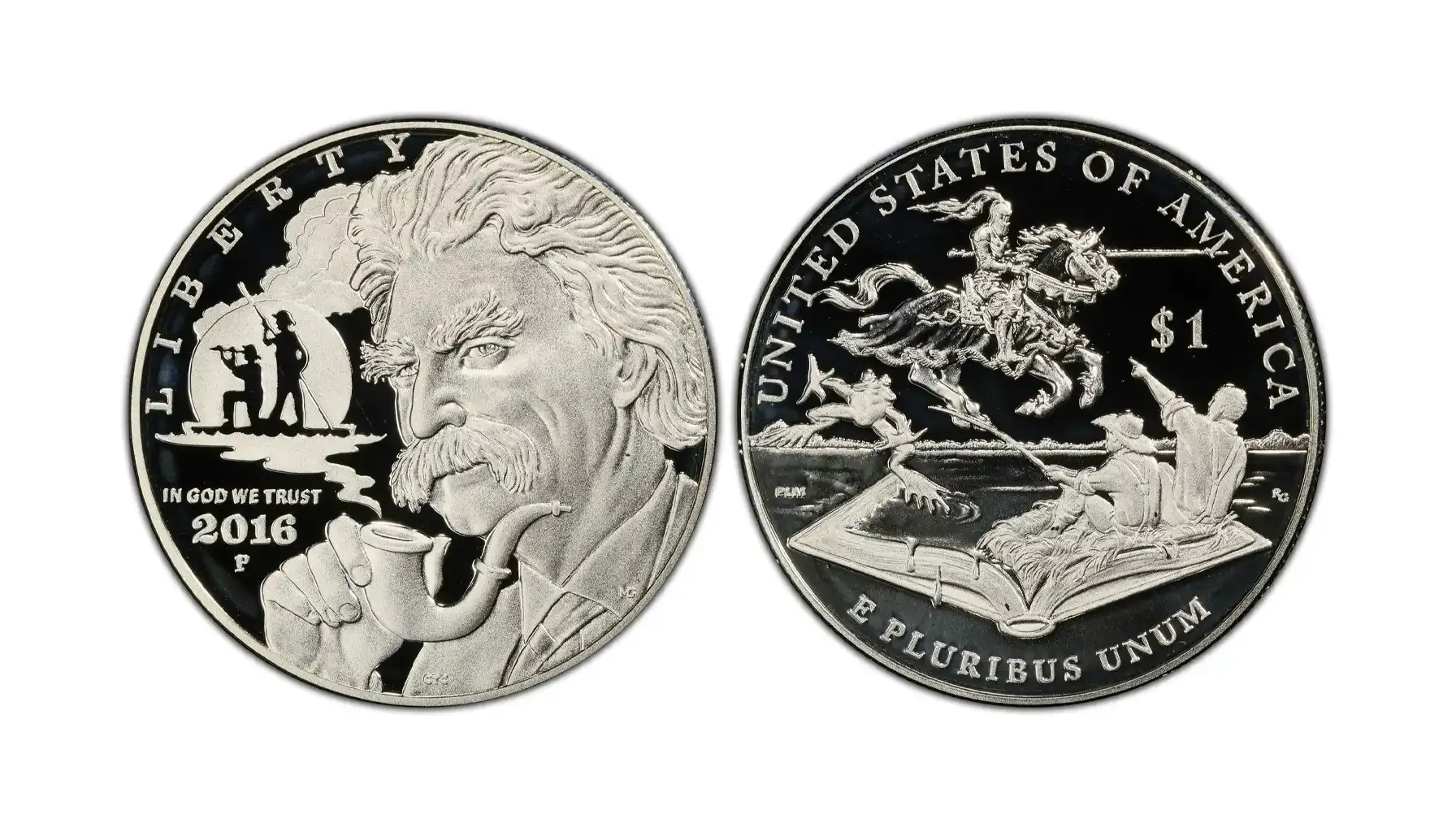
2020: Women’s Suffrage Centennial Silver Dollar
Value: ≈$400
The order of things we know today (liberal, open, and trying to be free of prejudices) is the result of what had been done a century ago. Thanks to the suffrage activists and their efforts, women are finally granted equal rights and have an opportunity to vote in the end.
These modern US commemorative silver dollars celebrate the anniversary of the 19th Amendment which was only possible due to the strength and persistence of those courageous women of the past. This $1 displays three female profiles of different appearances which indicates the diversity and versatility of the movement and their supporters.
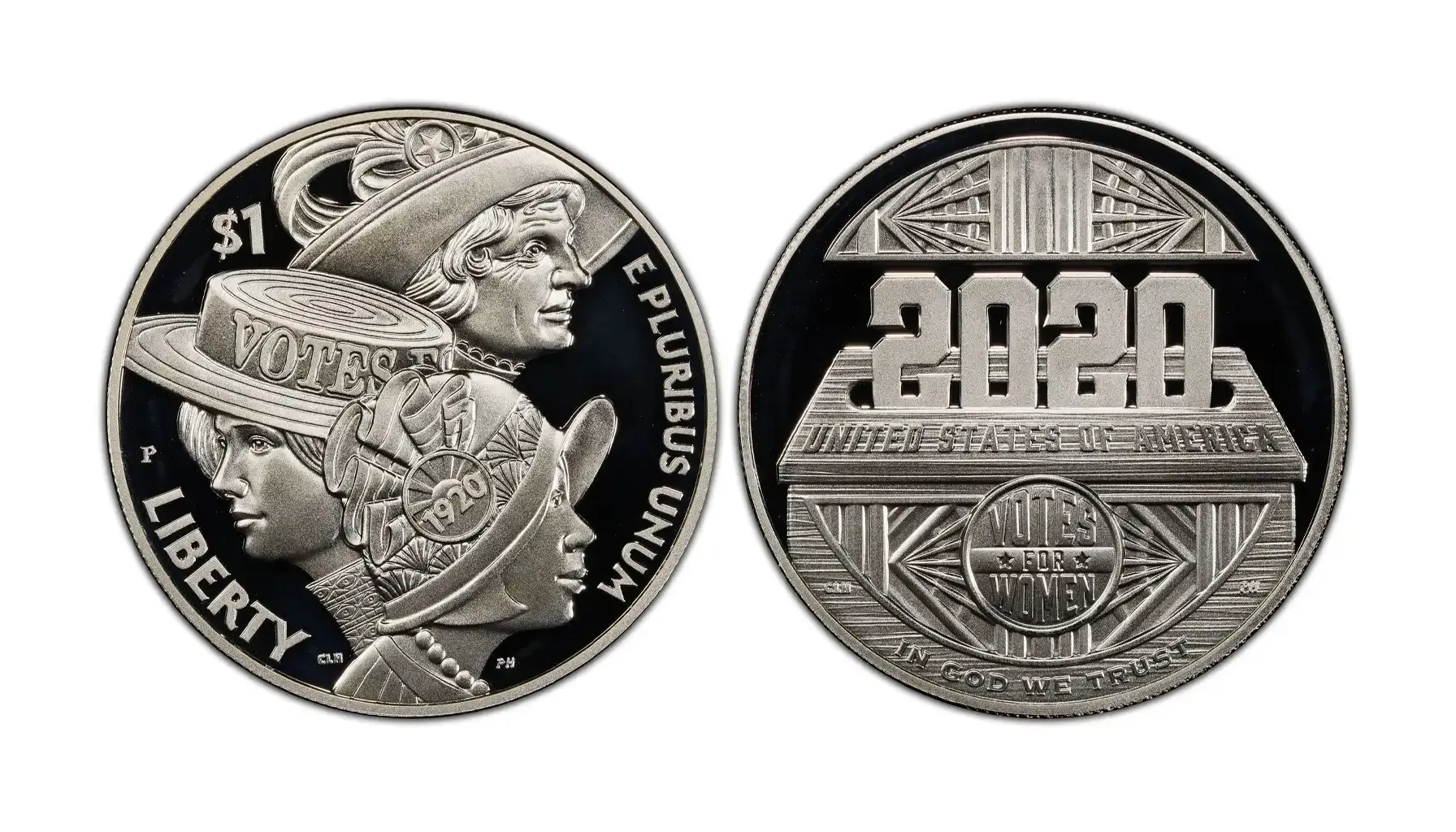
Why Do They Matter?
Are commemorative coins worth anything? Yes, indeed. While some iterations can be sold for only their face value (up to a few dollars), the rarest instances are worth hundreds or thousands of dollars. Nevertheless, this depends on rarity, background, metal content, and condition.
The United States commemorative coin values do not really change over time, which is why collectors from different parts of the world strive to obtain a piece of the American dream, at least in the form of a coin. Commemorative coins serve as great reminders of the most crucial steps, people, and ideals in history that may bring this valuable information through the generations and evoke a sense of solidarity and pride via these metallic reflections carried through the art.
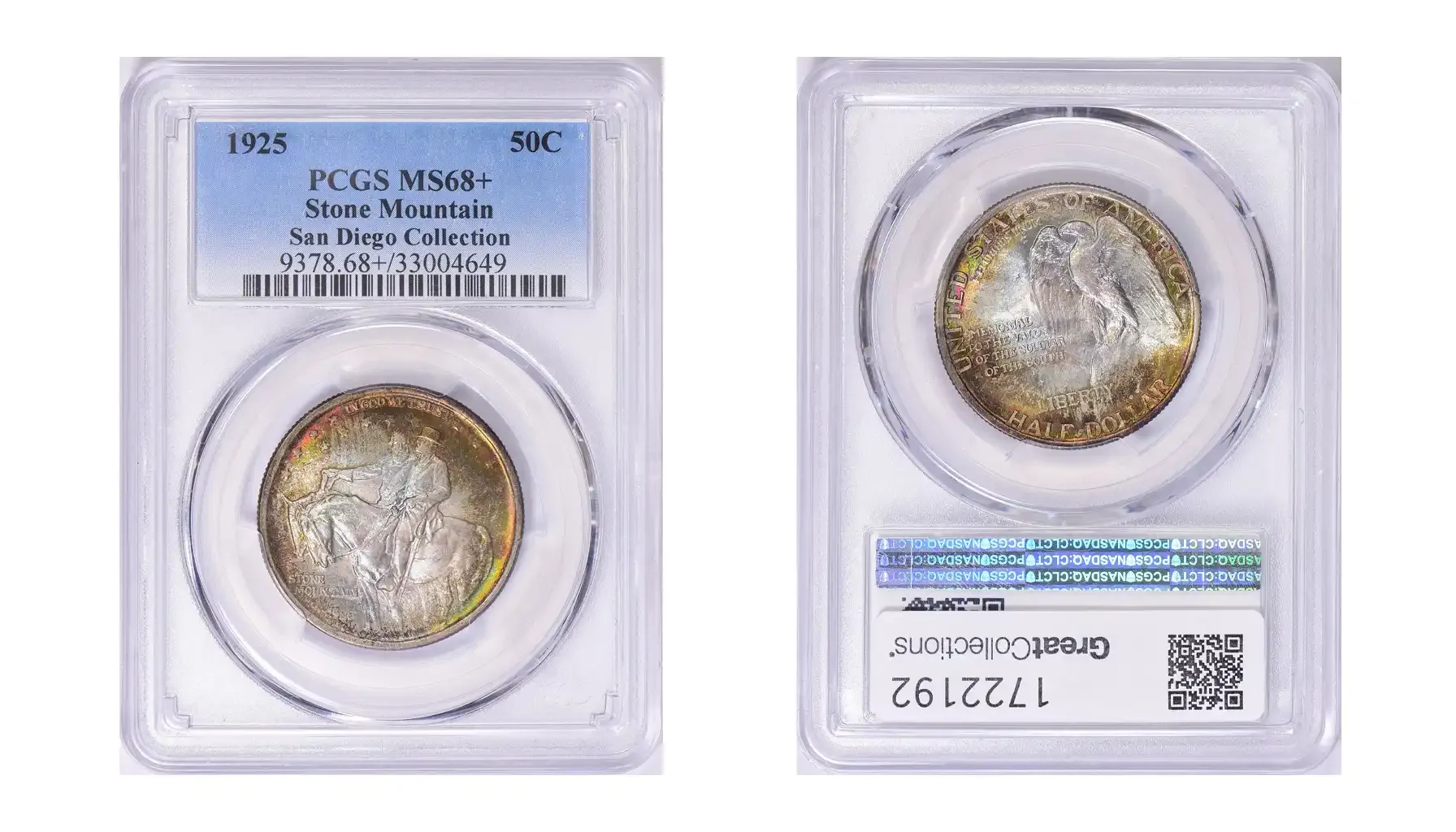
Pick Up Your Memorable Coin with Coin ID Scanner
Collectors and amateur enthusiasts know how complicated it may be to find a coin that perfectly meets their preferences and needs. Nevertheless, with Coin ID Scanner, this problem might disappear overnight. Coin ID Scanner is an innovative yet traditionally reliable tool for quick coin identification by photo (it can even scan ancient Roman coins), easy collection management, proper knowledge acquisition, and prompt communication with the numismatic society.
No matter where you are, this application is always ready to assist. Intuitive navigation, only relevant features, AI support, and an open yet secure platform altogether offer a great opportunity for numismatists and wannabes to find answers to their questions, keep up with the latest news and upcoming events, and get educated day by day. Just install this software, grant all the necessary permissions, and start your numismatic journey today. Free of charge and full of new experiences!

The US commemorative coins captivate and delight as they bring essential stories important for the whole nation and the world, too. For enthusiasts, these may become target valuables that are to take a major part in their collections. Go ahead and find something that may be suitable and appealing just for you.

